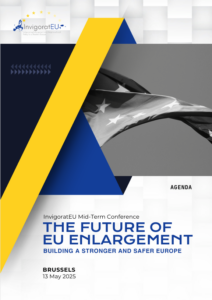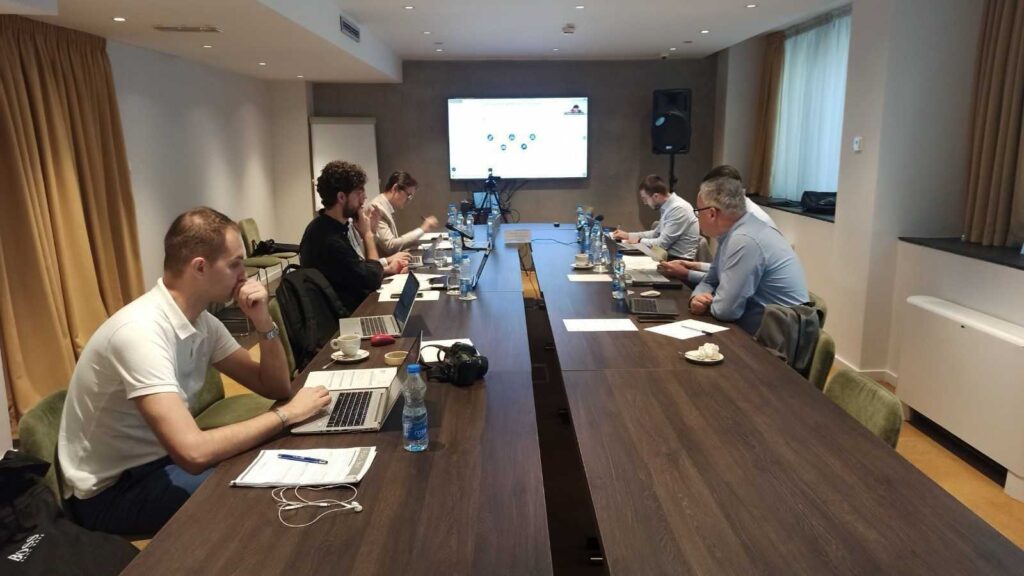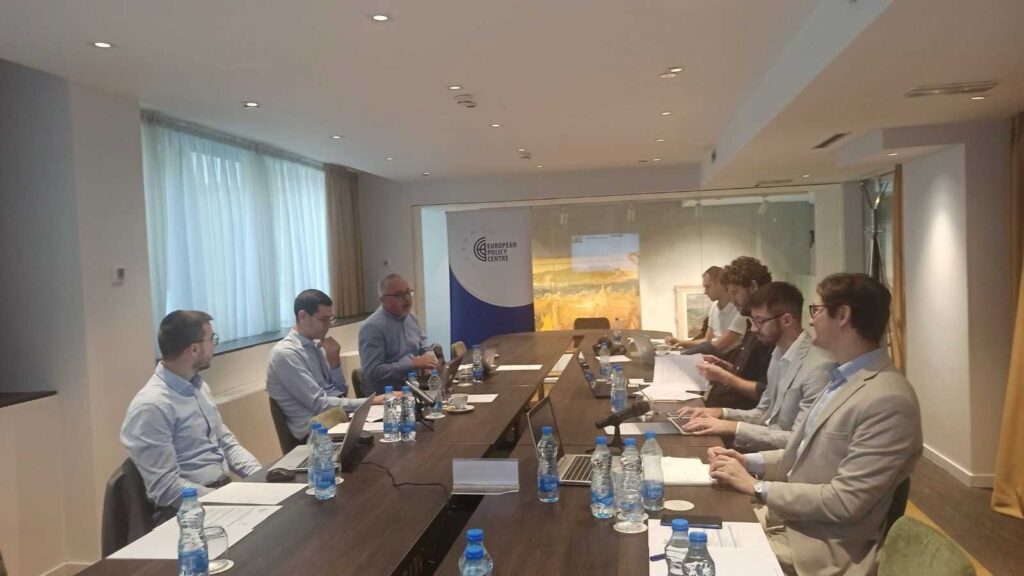Headquarters: Svetog Nauma 7, 11000
Office address: Đorđa Vajferta 13, 11000
Phone:: +381 11 4529 323

27 September 2023 – Regional Consultative Workshop Supporting the EU integration of Western Balkan countries by enabling better tracking of reforms in the area of functioning of democratic institutions, organised by CEP, was held at Belgrade.
Participants at the event were Milena Mihajlović, Strahinja Subotić, Miloš Pavković, Đorđe Dimitrov, and Marko Todorović from CEP, Daniel Prroni from Institute for Democracy and Mediation – IDM, Tirana, Haris Ćutahija from Foreign Policy Initiative – FPI BH, Sarajevo, Arber Fetahu from Group for Legal and Political Studies – GLPS, Prishtina, Dragana Jaćimović from Institute Alternativa – IA, Podgorica, and Stefan Ristovski from European Policy Institute – EPI, Skopje.
At the very beginning of the workshop, Milena Mihajlović, the Programme Director of CEP, gave an introductory speech and a welcome to the participants. She presented the course of the workshop by highlighting presentations of three research papers which will explain how European Commission’s (EC) reporting reflects on functioning of the democratic institutions (FoDI). In her introductory speech, she also highlighted the key role of advocacy and dissemination of these ideas, upon which she relies on partnership contributions.

During the first part of the workshop, Strahinja Subotić, Senior Researcher and Programme Manager, and Miloš Pavković, Researcher, presented their research titled “Identifying Inconsistencies in EC WB6 Country Reports” . This study involved a comprehensive analysis of the European Commission’s reporting approach concerning the progress of WB6 countries in the field of FoDI. This analysis covered five key reporting topics: Elections, Parliament, Governance, Civil Society, and Civil Oversight of Security Forces. This research also presented some disparities that were spotted in EC’s reporting. During the discussion part about the first paper, participants agreed that the Commission needs to adopt a consistent reporting approach to ensure enough detailed information on the progress and to facilitate comparison across reports.

After that, Subotić and Pavković presented their second paper, “Quantifying the FoDI”. In this research, researchers used data from other sources such as Freedom House’s Freedom in the World and Nations in Transit, as well as Varieties of Democracy (V-Dem). During the discussion about this paper, participants from partner organisations gave very valuable input. This paper recommended that EC needs to provide a more accurate assessment for each of the five years. Also, they need to develop their own methodology and indicators specific to the region they write reports on.
In the third segment of the workshop, Đorđe Dimitrov, Junior Researcher, presented a paper which he co-authored with Subotić, “Deepening and Expanding the Scope of the EC’s Reporting”. They marked important topics which were neglected or haven’t been sufficiently addressed in the Commission’s reports. Participants from other organisations agreed that this research points directly to the flaws of the reports, which EC can address and resolve. Most importantly, participants agreed that EC’s reports need to stay readable and user-friendly. However, some topics need to be included once they surpass a certain threshold of significance in a country-specific context.